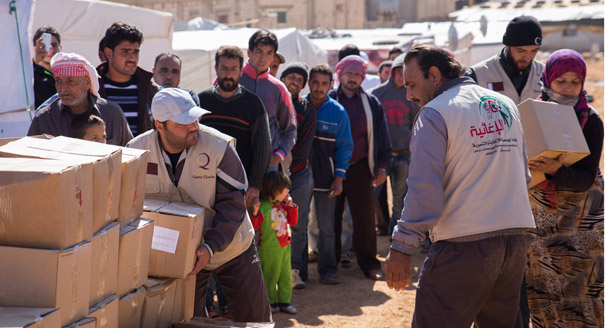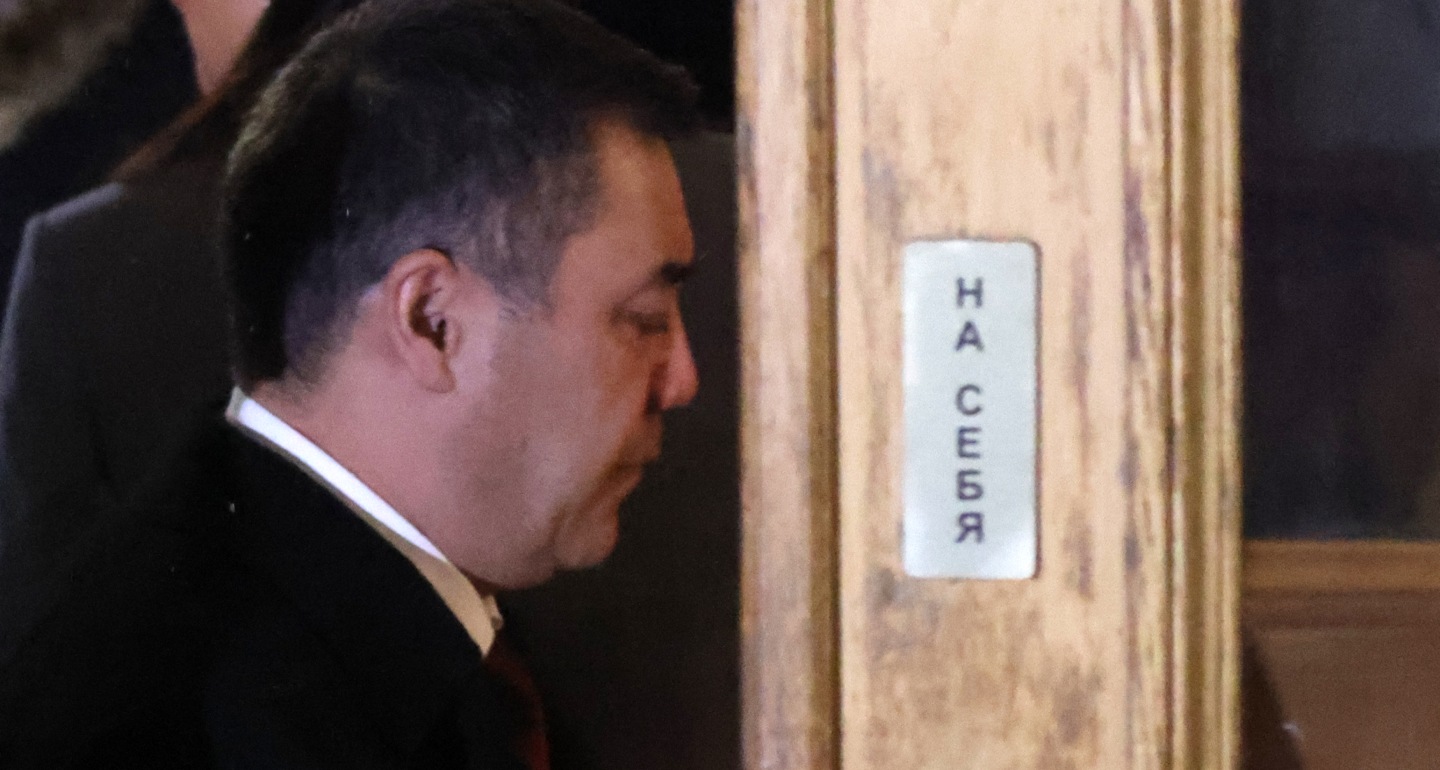Source: Al-Hayat
Lebanon is reeling from social tension as a result of the Syrian refugee crisis. This tension can be ascribed to multiple reasons: the per capita ratio of refugees, their demographic distribution and concentration in marginalized areas, insufficient financial support to deal with their influx, as well as a series of government measures that have backfired. Today, Lebanon hosts more Syrian refugees than any other country in the world, being home to around 38 percent of the total Syrian refugee population. With more than one million Syrians officially registered in the country, refugees now make up around one-third of the population of Lebanon.
Eighty-six percent of refugees are concentrated in impoverished neighborhoods where a majority of marginalized Lebanese reside (66 percent of vulnerable Lebanese). Some areas of Lebanon have also become overpopulated. In fact, the population of some towns in the Bekaa and the North has doubled. For example, Arsal--the scene of recurrent clashes in the vicinity of refugee camps--now has a population of 40,000 Syrians and 35,000 Lebanese. Meanwhile, less than one-third of external pledges for Lebanon in assistance to refugees have been honored, according to Amnesty International.
Faced with this situation, refugees have started looking for work, but have been accused of stealing jobs from the locals. As a counter-measure, the Lebanese government has restricted the freedom of work for refugees in Lebanon, leaving many of them in the throes of the informal economy. One-third of Syrian refugee men are currently unemployed, while the average salary of those working accounts for only 40 percent of the minimum wage. The situation is even worse for women, and that is not to mention exploitation and abuse.
These factors combined help elucidate the rising tension in Lebanon. For host communities, refugees have become economic competitors and represent a strain on health and social services. Adding fuel to the fire, security incidents in the North and the Bekaa have caused refugee camps to be regarded as havens for terrorists. With this shift in perception, refugees are no longer seen as victims, but as terrorists.
But the problem does not simply lie in the shift in perception, nor in whether the majority of refugees actually do perpetrate criminal acts or not. Simply put, the rate of illegal acts in any given society tends to increase automatically with any significant population growth. In Lebanon, however, the uptick in crime rates is not only attributed to population increase, but also to the deteriorating economic and security situation. Economic marginalization may push more refugees down the path of crime and into terrorist groups, which will sully their image and undermine their relation with the Lebanese people.
A study conducted by the office of the United Nations High Commissioner for Refugees (UNHCR) in June and July 2014 showed that 61 percent of the 446 surveyed host communities witnessed refugee-related incidences of tension or violence in the six months prior to the reporting period, i.e. since the start of the year. In addition, Lebanese and international civil society and the United Nations, inter alia, have documented tens of cases indicating the use of force against refugees. For example, flyers have been distributed across Lebanon calling on refugees to leave, threatening them with violence or death. In other instances, Syrians have been assaulted with the aim of expelling them from particular regions or restricting their movement.
The crisis needs to be analyzed from the broader perspective of the state. After all, state institutions can play a positive role in stemming the tide of the conflict. A glance at UN figures on violent incidents involving refugees shows that fewer incidents are reported in Beirut and Mount Lebanon. This may be due in part to the greater efficiency of municipalities and the presence of the police and the Lebanese Armed Forces there. (Syrian refugees in Beirut and Mount Lebanon are also financially better off than refugees in more remote parts of the country, which can ease socio-economic tension.)
But according to Human Rights Watch reports, some attacks have taken place in full view of Lebanese security forces, which did not intervene. Many attacks were unreported due to refugees’ fear of reprisals. In some cases, the police dismissed complaints. Some Syrians were also arrested when reporting such incidents to the police, at times because they lacked valid residency permits, and at others in spite of their legal stay.
Municipalities in Lebanon have adopted unilateral approaches to refugee-related problems. For instance, the Municipality of Zahle has imposed a curfew on ‘foreigners’ –in blatant disregard of Lebanese law. This is due to the government’s failure to elaborate a unified central policy regulating how municipalities should address the refugee issue. In addition, in many areas, it is not the state that enforces the law, but parties, clans or individuals.
Social tension is also reflected in Lebanon’s confessional makeup. With three-quarters of Syrian refugees in Lebanon being Sunnis, the Sunni community has come to represent the largest sect in Lebanon. The political and security repercussions of this demographic change are fomenting fears of a repeated Palestinian refugee scenario –with the imbroglio of their naturalization and employment opportunities. The demographic change also exacerbates confessional tension, leading many parties to justify their calls for armament under the pretext of ‘self-defense’, allegedly to shield their communities from terrorism by Sunni extremists.
The Lebanese government does not have a measured long-term plan to cope with this situation, even though not all refugees will automatically return to Syria once the civil war comes to an end, as many have lost their homes and livelihoods. Civil society groups and the UN, however, have rolled out some programs to ease the social tension arising from the refugee crisis. These programs focus on dialogue among communities, conflict resolution, and cooperation with educational and media institutions to raise public awareness and fight racism. They also attempt to expand social and health services, and create job opportunities in fields, such as handicraft, considered uncompetitive from the perspective of the Lebanese workforce.
These programs have been relatively more successful in the South, where the existing infrastructure is more receptive to civil society action –NGOs have already launched many a new initiative in that part of the country in the aftermath of previous crises. But the security situation in the North and the Bekaa is seriously limiting the implementation of civil society programs. A glance at UN figures shows that these programs are far from attaining their goals across Lebanon. Up to September 2014, UNHCR has only trained 843 people – of a targeted 7,000 people – to promote social cohesion. New job opportunities were created for less than 5,000 people, of a target of 90,000 beneficiaries.
As a result of these factors, many regions are locked in a vicious circle: Social tension resulting from the deteriorating economic and security situation aggravates the security situation, which ultimately undermines the efficiency of civil society. This, in turn, foments social tension and economic strains, leading to further instability.
In light of the government’s inefficiency, the subpar external support, and civil society’s limited capabilities, Lebanon is gripped by a chronic crisis that is jeopardizing its social contract and security prospects. While Lebanon today is not a welcoming environment for extremist terrorist groups, mounting economic marginalization, as well as social and sectarian tension, against the backdrop of ongoing unrest in Syria, may be factors of long-term instability in Lebanon. The international community bears a large brunt of this shared responsibility because of its inadequate approach to unrest in Syria. And although Lebanon’s capacity to enlist the help of the international community is limited, the Lebanese government and the country’s community of political leaders can be more responsive to the refugee crisis requirements. Hope continues to run high that this crisis will be the trigger for a domestic political agreement in Lebanon, especially that it exacts its toll on political leaders of all stripes.
This article was originally published in Arabic in Al-Hayat.














